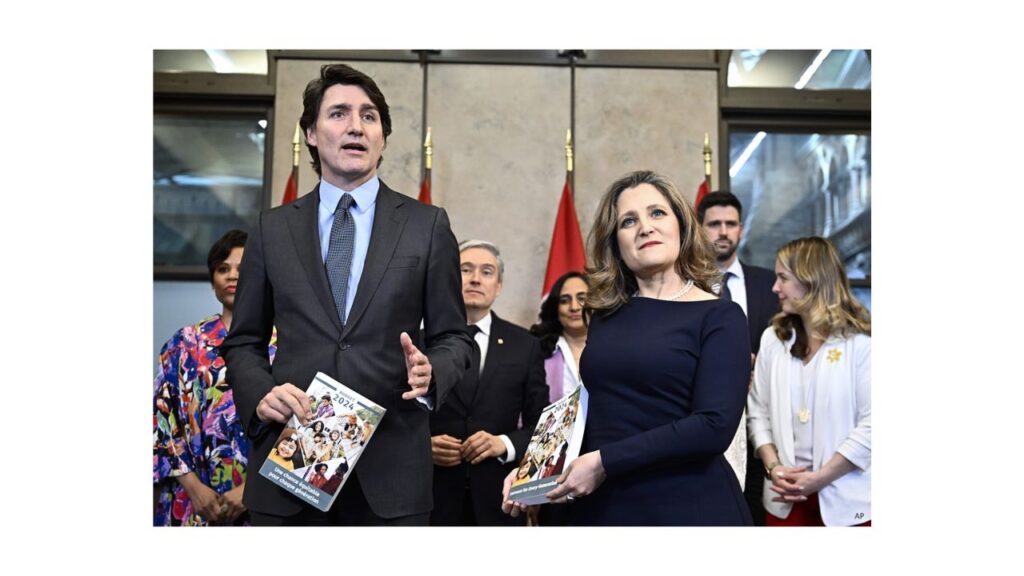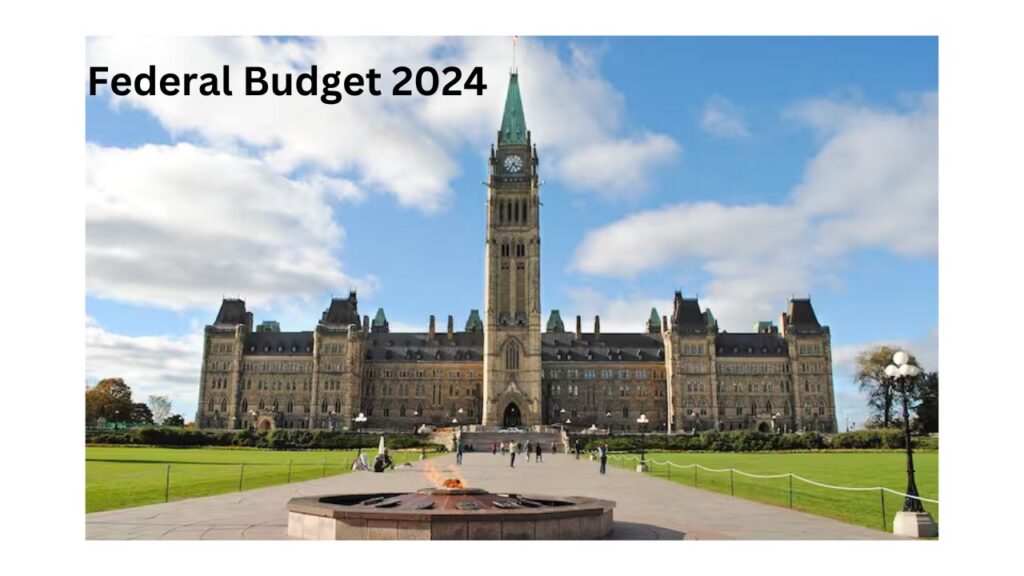Almost $53 billion will be added to the budget during the next five years.
Today, Finance Minister Chrystia Freeland presented a budget that is over 400 pages long, which her administration is promoting as a comfort to worried millennials and Generation Z.
$52.9 billion in increased investment over five years is proposed in the budget, with $8.5 billion of that amount going toward housing. Ottawa is proposing policy reforms to generate new money in order to partially offset that additional spending.
The budget for 2024 includes the following noteworthy legislative pledges and financing projects.
To reach housing targets, Ottawa is clearing out its underused offices.
The budget’s housing commitments are one of its main cornerstones. The government announced what it is referring to as Canada’s Housing Plan—a commitment to “unlock” roughly 3.9 million houses by 2031—prior to presenting the budget.
According to the government, two million of those would be net new homes, and it thinks it can help finance almost half of them.

It plans to do that by:
- Transforming vacant federal buildings into residences. The budget allots $1.1 billion over a ten-year period to convert fifty percent of the federal office portfolio to residential space.
- Erecting houses atop Canada Post land. According to the government, new houses can be constructed alongside postal services at any of the more than 1,700 Canada Post locations nationwide. According to the federal government, six Canada Post properties in British Columbia, Alberta, and Quebec are being evaluated for possible development “as a start.”
- Teevaluating the properties of national defense. The administration has pledged to investigate the possibility of repurposing buildings and structures on National Defence holdings for both military and civilian purposes.
- Constructing residential buildings. The Apartment Construction Loan Program, which promises to construct 30,000 new dwellings throughout Canada, will receive a $15 billion boost from Ottawa.
Taxing vacant land?
The federal government says it is looking at unoccupied property that may be used to build homes as part of its push for housing.
The budget states that the government will think about imposing a new tax on unoccupied land that is allocated for residential use, but it does not yet commit to any new initiatives.
- The new federal budget by Freeland increases taxes on the wealthy to pay for billions of further spending.
- Do you intend to buy a home, or are you renting? This is what you can expect from the government budget.
Later this year, the government stated, it will begin holding consultations on the proposal.
Help for students
Additionally, funds are included in the budget for students looking for accommodation.
In order to better represent the cost of housing in the current environment, the government said it will change the methodology used by the Canada Student Financial Assistance Program to assess housing costs when establishing financial need.

According to official projections, this may provide an additional 79,000 students with rent assistance annually, at an estimated cost of $154.6 million over five years.
- UPDATEDAn increase in defense funding over several years is included in the federal budget.
- The budget for 2024 includes a $9 billion guarantee from liberals for Indigenous communities.
Along with higher student subsidies and interest-free loans, the government is committing to spending an estimated $1.1 billion this year on these initiatives.
A rise in capital gains taxes
The government is proposing a tax increase on capital gains, or the profit people get when they sell assets like stocks and second homes, in order to help pay for some of its multibillion dollar obligations.
For annual capital gains over $250,000, the government is proposing raising the taxable percentage of capital gains from the current 50% to two thirds.
According to Freeland, the richest 0.1% would be impacted by the shift.
Small enterprises are still somewhat protected. A lifetime capital gains exemption has been in place, enabling Canadians to avoid paying capital gains tax on sales of small business shares, farming and fishing property, and up to $1,016,836. According to the budget, the tax-free ceiling will rise to $1.25 million in June and will then be adjusted to inflation.
Though some analysts are not persuaded, the federal government projects that this might generate over $19 billion in revenue over the course of five years.
Monthly disability benefits are $200.
The Canada Disability payment Act, approved by Parliament last year, guaranteed low-income working-age individuals with impairments a direct payment.
A new Canada Disability Benefit is to be funded with $6.1 billion over six years, starting in this fiscal year and continuing at $1.4 billion annually, according to Budget 2024.
The advocates had hoped for a monthly stipend of about $1,000 for each individual. They will feel let down.

The budget paper states that low-income disabled people between the ages of 18 and 64 will receive a maximum payment of $2,400 annually, or around $200 per month.
- The federal government intends to use a new housing strategy to lease public lands for construction.
- The premier of Alberta says she’s ready to sue Ottawa over housing deals in court.
According to the government, the Canada Disability Benefit Act will go into effect in June 2024, and payments will begin in July 2025.
Carbon rebate for small businesses coming
Small business groups have been berating the federal government for allegedly breaking a pledge to reimburse small firms for a percentage of the cash generated by the carbon price in order to offset the financial burden of the tax.
- Why is there a carbon tax, and is it effective?
- The federal government reduces small business carbon tax rebates.
The budget suggests creating a new refundable tax credit to reimburse fuel charge revenues from 2019–20 through 2023–24 to an estimated 600,000 enterprises with 499 or less employees.
According to the government, this would immediately benefit small and medium-sized enterprises in Canada to the tune of $2.5 billion.
Vape pods and darts will cost extra.
The Liberals are pledging to increase sales of tobacco and smoking products in exchange for reducing the number of individuals who smoke and vape.

The total tobacco excise charge per carton will be $5.49 as of Wednesday. The federal government projects that over a five-year period beginning in 2024–2025, this might raise revenue by $1.36 billion.
Additionally, the budget suggests raising the excise tax rates on vaping by 12% starting on July 1. This translates, depending on where you reside, to a rise of 12 to 24 cents per pod.
Ottawa anticipates raising $310 million via sin taxes over the course of five years, beginning in 2024–2025.
